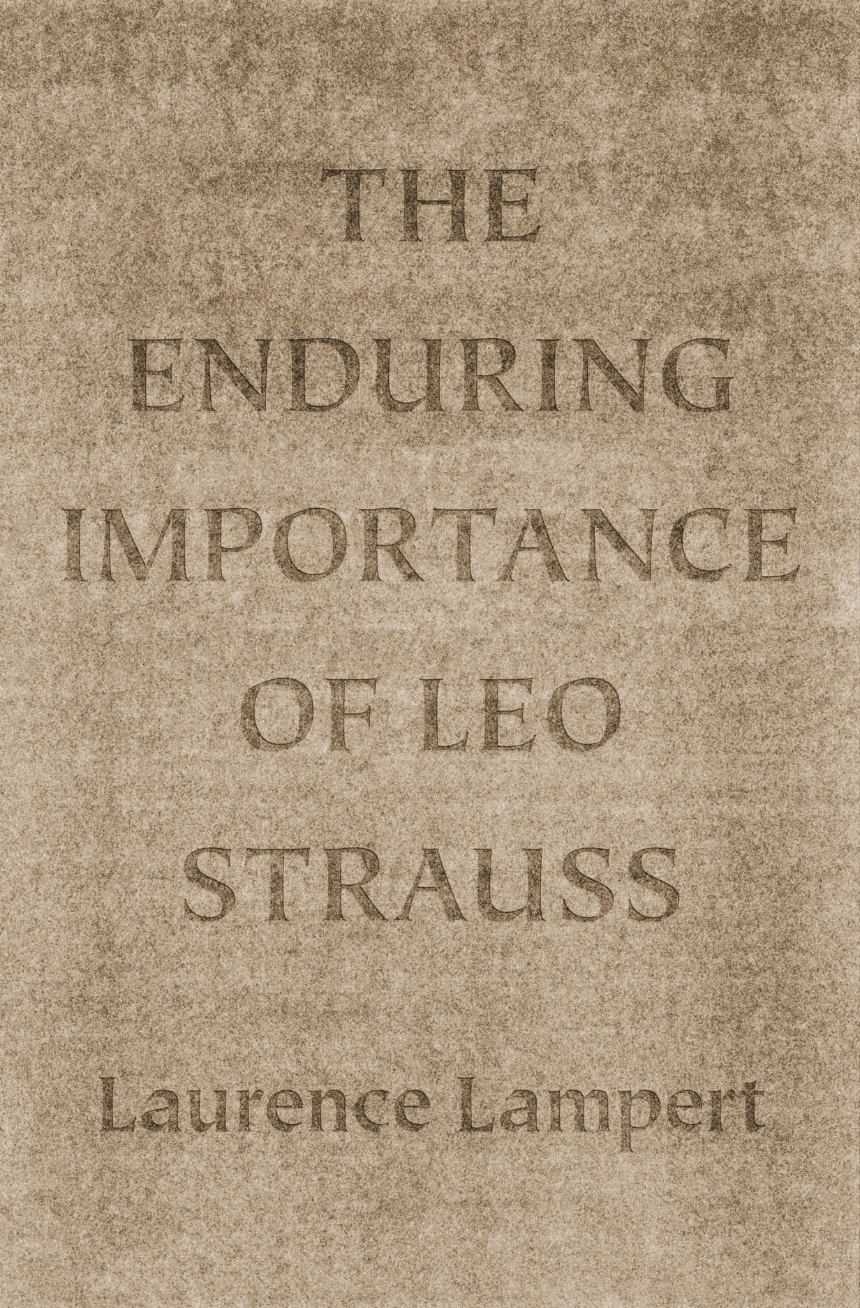The Enduring Importance of Leo Strauss
The Enduring Importance of Leo Strauss takes on the crucial task of separating what is truly important in the work of Leo Strauss from the ephemeral politics associated with his school. Laurence Lampert focuses on exotericism: the use of artful rhetoric to simultaneously communicate a socially responsible message to the public at large and a more radical message of philosophic truth to a smaller, more intellectually inclined audience. Largely forgotten after the Enlightenment, exotericism, he shows, deeply informed Strauss both as a reader and as a philosophic writer—indeed, Lampert argues, Strauss learned from the finest practitioners of exoteric writing how to become one himself.
Examining some of Strauss’s most important books and essays through this exoteric lens, Lampert reevaluates not only Strauss but the philosophers—from Plato to Halevi to Nietzsche—with whom Strauss most deeply engaged. Ultimately Lampert shows that Strauss’s famous distinction between ancient and modern thinkers is primarily rhetorical, one of the great examples of Strauss’s exoteric craft. Celebrating Strauss’s achievements while recognizing one main shortcoming—unlike Nietzsche, he failed to appreciate the ramifications of modern natural science for philosophy and its public presentation—Lampert illuminates Strauss as having even greater philosophic importance than we have thought before.
360 pages | 6 x 9 | © 2013
Philosophy: General Philosophy, History and Classic Works
Political Science: Classic Political Thought
Reviews
Table of Contents
List of Abbreviations
Introduction
Part One. Strauss’s Recovery of Exotericism
Chapter 1. Exotericism Exposed: Letters to Jacob Klein
Chapter 2. Exotericism Embraced: “The Law of Reason in the Kuzari”
Chapter 1. Exotericism Exposed: Letters to Jacob Klein
Chapter 2. Exotericism Embraced: “The Law of Reason in the Kuzari”
Part Two. The Socratic Enlightenment
Chapter 3. The Peculiarly Socratic Philosophizing: Xenophon’s Gynaikologia
Chapter 4. Socrates, the Real Real Man: Xenophon’s Andrologia
Chapter 5. Platonic Political Philosophy: “Ministerial Poetry”
Chapter 6. Extending the History of Philosophy Back to Homer: Seth Benardete’s Odyssey
Part Three. The Modern Enlightenment
Chapter 7. Attacking the Enlightenment on Behalf of Orthodoxy: The Introduction to Philosophy and Law
Chapter 8. Attacking the Enlightenment on Behalf of Socrates: “What Is Political Philosophy?”
Chapter 9. Advancing the Enlightenment: Strauss’s Recovery of Nietzsche’s Theological-Political Program
Epilogue: Strauss’s Farewell
Works Cited
Index
Index
